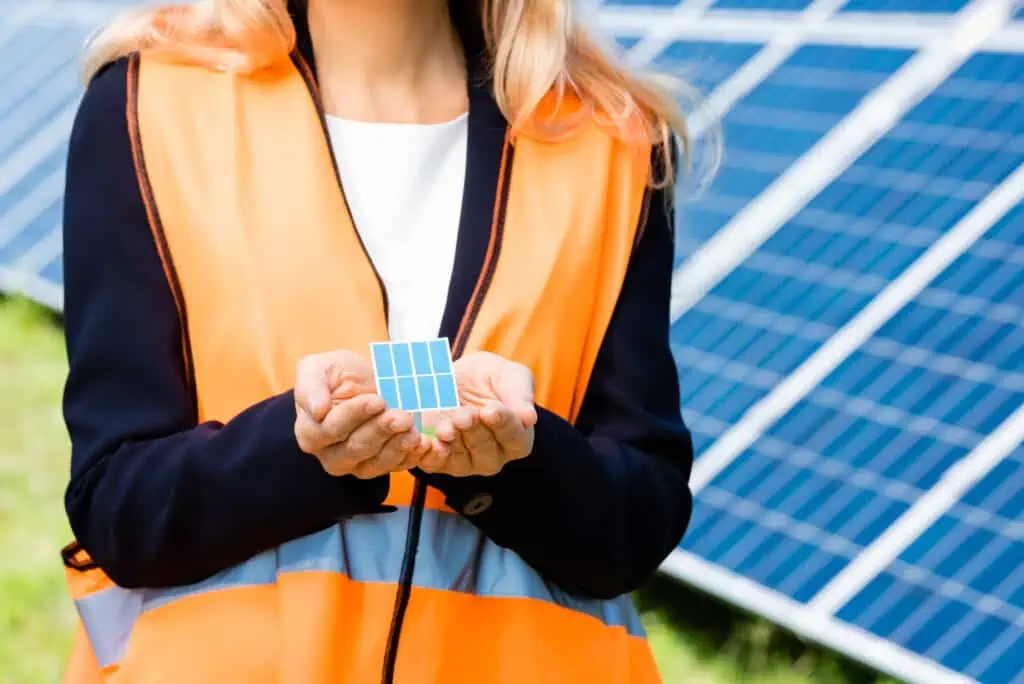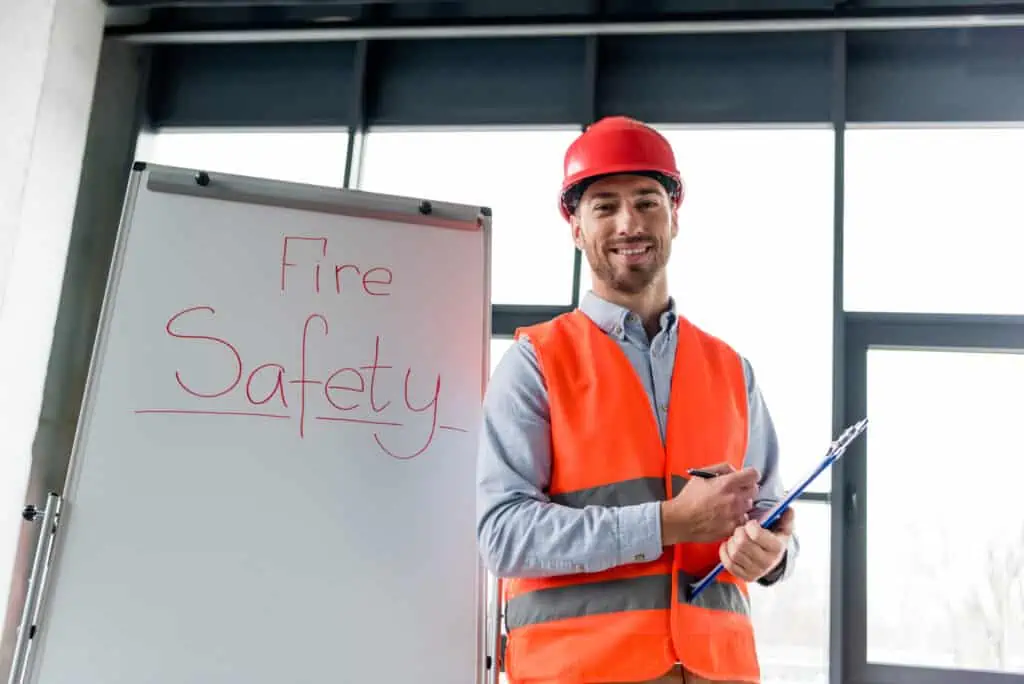In today’s energy landscape, more homeowners are looking to renewable sources. And solar energy is a top choice.
As homes tap into the sun’s power, battery storage systems become vital. This includes popular options like lithium-ion batteries and lithium-iron-phosphate.
But with this new technology come questions and concerns. How safe are these battery storage systems? What risks should homeowners know about?
It’s important to understand battery chemistry and the different types of batteries out there. We should also be aware of the safety standards set by battery manufacturers.
This guide will dive deep into the world of solar batteries. If you’re concerned about property damage or electrical faults, this article has you covered.
Contents
How Safe Are These Systems?
Over the past few years, battery technology has seen many advancements. Manufacturers are now more equipped than ever to produce safer and more efficient battery cells.
The heart of this innovation lies in battery chemistry, which determines how energy is stored and released.
The older lead acid batteries have been around for decades and are considered reliable. But the newer lithium-ion and lithium iron phosphate batteries offer higher energy densities and longer lifespans.
It’s worth noting that battery manufacturers prioritize safety. New designs integrate advanced battery management systems. They’re adding new features to make sure batteries work right and stay safe.
One of these is the battery management system. It watches the battery to make sure it’s working correctly and safely.
General Safety Statistics
Modern solar battery storage systems have a commendable safety record. There aren’t many reports of fires or big problems with lithium-ion batteries, especially when we think about other risks in our homes.
This is not to say they are entirely without risk. But with adherence to safety standards and proper use, the probability of property damage or other hazards remains minimal.
It’s also good to keep an eye on your batteries. If you notice they’re getting too hot, swelling up, or leaking, it’s a sign something’s not right.
If that happens, it’s best to get some help and check what’s going on.
In short, no technology is entirely risk-free. But solar batteries, when managed and maintained properly, pose a minimal threat to homeowners.
Solar Industry’s Perspective on Battery Fires
When we talk about solar batteries and safety, it’s essential to understand what the solar industry experts think and do about it.
Industry Statistics on Incidents
Battery fires make the news, but they’re not as common as some might think. The solar industry keeps a close eye on these incidents.
The good news is, compared to all the battery storage systems out there, only a tiny fraction have had problems. Most solar battery systems work without any hitches.
Steps Taken by the Industry to Address Concerns
The industry isn’t just sitting back. Battery manufacturers are always working to make them safer. They invest in research to understand battery chemistry better and come up with safer designs.
Many battery manufacturers have set strict safety standards. They test their battery cells and battery energy storage systems under tough conditions. This way, they can be sure that the batteries will work safely in our homes.
Plus, if there’s ever a concern with a certain model or batch of batteries, manufacturers often issue a recall notice. They’ll let people know to stop using the affected batteries and will replace them or fix the issue.
The solar industry is serious about safety. They’re always learning, improving, and making sure that homeowners can trust their solar battery systems.
Common Causes of Battery Fires
It’s important to be aware of potential risks, especially concerning battery storage systems. One question many homeowners have is: What can cause these batteries to catch fire?
Technical Reasons Behind Battery Overheating
At the core of most battery fires is overheating. Different factors can lead to this:
- Faulty battery design: If a battery is not designed correctly, it can have internal issues that cause overheating.
- Internal short circuits: This happens when there’s unintended contact between the positive and negative sides inside a battery. It can be due to manufacturing defects, physical damage, or even a tiny metal particle inside the battery.
- External factors: Things like punctures, crushing, or other forms of physical harm can damage the delicate internal structure of battery cells, leading to risks.
Circumstances that Lead to Fires
- Improper charging: Using an incorrect or malfunctioning charger can overcharge the battery. Overcharging can stress the battery cells and lead to overheating.
- Poor battery management: A good battery management system monitors and regulates a battery’s health. If this system fails or isn’t present, the battery may not operate safely.
- Environmental conditions: Storing batteries in places with high temperatures or humidity can degrade the battery chemistry and increase the risk of fires.
- Old or damaged batteries: Like all things, batteries have a lifespan. Using batteries past their prime or ones showing signs of damage can be risky.
It’s crucial to understand these causes not to instill fear but to take preventive measures. By knowing the risks, you can ensure your battery storage systems’ safe operation.
Proper Installation to Prevent Fires
Proper installation is a primary step in preventing potential fire hazards. Before anything else, make sure to always get an expert.
Getting someone who knows what they’re doing is step one. They’ve done this before, and they know how to handle batteries.
Key Installation Guidelines
- Right location: Batteries shouldn’t be placed in areas prone to extreme temperatures. It’s best to keep them in well-ventilated spaces away from direct sunlight or moisture. This ensures the battery doesn’t overheat and the delicate battery chemistry remains stable.
- Space around the battery: Ensuring some free space around the battery system helps in efficient cooling. Crowding can trap heat, which is a common cause of battery problems.
- Use compatible components: Make sure all the pieces of your solar setup work well together. These parts include chargers, inverters, and battery management systems. Mismatched components can lead to overcharging, undercharging, or other issues.
- Secure mounting: Batteries should be securely mounted to avoid any movement. A stable setup ensures the battery stays in its place even during unexpected jolts or shakes.
- Regular inspection: Once installed, a routine check is necessary. Inspecting for signs of damage, loose connections, or any unusual behaviour ensures early detection of potential issues.
- Follow manufacturer’s guidelines: Different battery manufacturers may have specific installation recommendations. Always refer to and follow these guidelines.
Best Operating Practices
The practices below are made to maximize efficiency and safety while preventing potential hazards.
Charging and Discharging Recommendations
- Avoid deep discharging: Always ensure that your battery doesn’t discharge below the manufacturer’s recommended levels. Deep discharging can stress battery cells and reduce their lifespan.
- Use recommended chargers: Always charge the batteries using the charger recommended by the manufacturer. This ensures the battery doesn’t overcharge or charge at a rate that’s too fast, which can lead to overheating.
- Monitor charge levels: Keeping a regular check on the battery’s charge level helps prevent overcharging or excessive discharging.
Routine Maintenance and Checks
- Regular inspections: Check the battery system for signs of damage, corrosion, or wear and tear. This early detection can prevent minor issues from escalating.
- Cleanliness: Keep the battery and its surrounding area clean from dust and debris. Accumulated dirt can trap heat or lead to other complications.
- Battery Management System (BMS) checks: Ensure that the BMS is working correctly. It plays a vital role in monitoring the health of the battery and ensuring it operates within safe parameters.
Knowledge and Awareness
- Stay updated: Battery technology evolves, and manufacturers may release new safety guidelines or recall notices. Stay informed about any updates related to your battery model.
- Safety protocols: Understand the emergency protocols in case of a malfunction. This includes knowing how to shut down the system safely and who to contact.
Letting Your Insurance Know About Your Solar Gear
Here’s why it might be a good idea to tell your insurance company about your solar panels:
- Your home’s worth more now. With those new panels, your home’s value might have gone up. It would be best to tell your insurance to make sure it’s all covered.
- There are discounts waiting for you. Some insurance companies give discounts if you have solar panels.
- It would be easier in case things go wrong. If something does happen, having your insurance clued in about your panels can make things go smoother.
Getting the Right Insurance for Your Solar Set Up
Those solar panels are an investment, and you’ve got to protect them right. Here’s how to think about insurance:
- Covering any mess-ups: Make sure your insurance covers any hiccups from your solar setup. This includes any out-of-the-blue issues like electrical problems.
- If someone gets hurt: Let’s hope it never happens, but if someone gets hurt because of your panels, you’ll want to be covered.
- Cash for missed savings: If your panels take a break and you lose out on saving energy, some insurance might help cover that.
- Guarding against theft: With the rise in solar installations, they can, unfortunately, become targets for theft. Ensuring your policy covers this scenario gives you peace of mind.
- Watch out for extra costs: Insurance policies can sometimes have different deductibles based on specific claims. Familiarize yourself with these to avoid surprises.
Final Thoughts
Taking the solar leap is like stepping into the future. Cleaner energy and maybe even some savings sound pretty sweet. But with every big step, you want to be ready for anything.
So, while you’re enjoying the sunny side of life, it’s always good to think ahead.
Ready to make the most of your solar journey? Dive into the details through our blogs! If you have any questions, ask away, and let’s make your solar dream a smooth ride.



